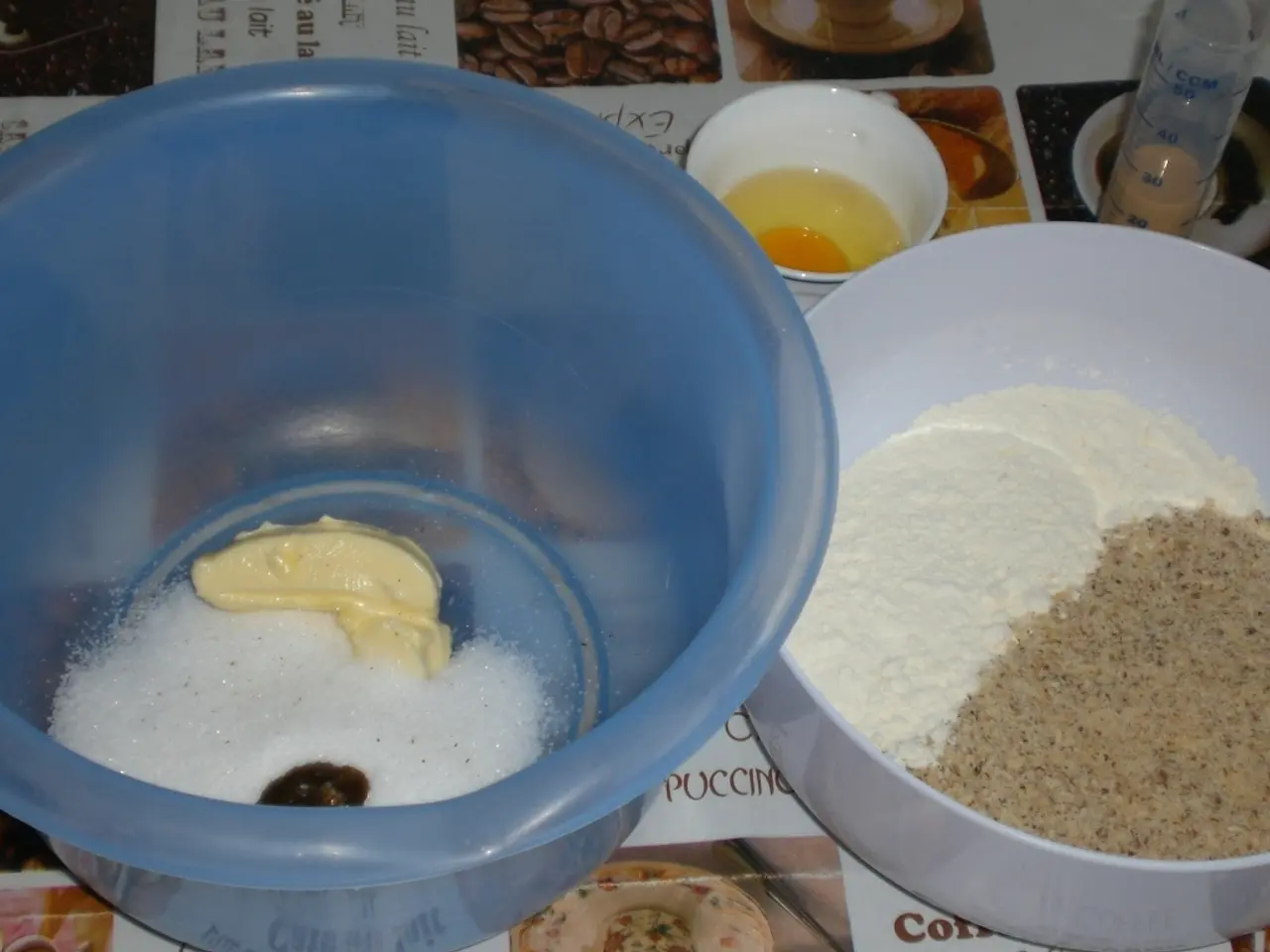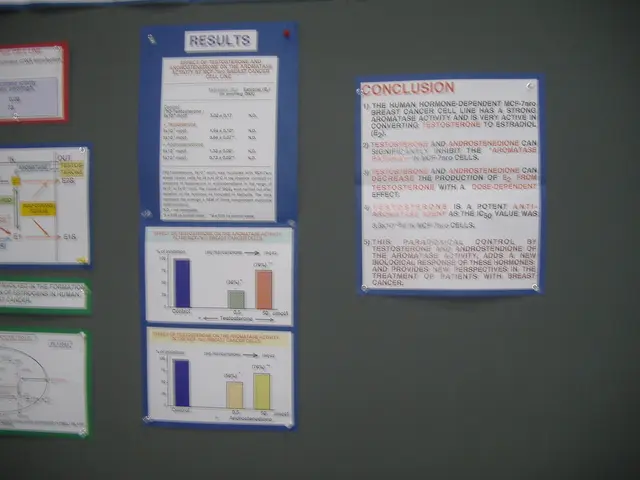Infant Colic: Understanding Causes, Symptoms, and Remedies
In the first few months of a baby's life, colic can be a common and distressing issue for both the baby and parents. Colic is characterised by prolonged and frequent crying, often without an apparent cause. Approximately 30% of newborn babies experience colic, and it usually appears around two to three weeks after birth and disappears by the time the baby is three to four months old [1][2][3][4][5].
There are several home remedies that can help alleviate colic symptoms in infants. Here are some effective approaches:
Gentle Tummy Massage
Using small circular motions on the baby's abdomen can help move gas and ease discomfort. This gentle massage can be performed multiple times a day [2][5].
Bicycling Legs and Knee-Pumping
Moving the baby's legs as if pedaling a bicycle or bringing knees to the chest encourages gas release. This simple exercise can be performed during and after feeds [1][3][5].
Warm Bath and Warm Compress
A warm bath or applying a warm cloth to the baby’s tummy or back can soothe colic pain by relaxing abdominal muscles. A warm bath can also help babies sleep better [1][3][5].
Use of Pacifier
Non-nutritive sucking on a pacifier may provide relaxation and comfort, helping with fussiness linked to colic. Offering a pacifier can be a simple way to soothe a colicky baby [3].
Optimal Feeding Positions
Feeding the baby in an upright position and burping them thoroughly after feeding prevents swallowing air, a common cause of colic. Holding the baby in several positions, such as the “football hold” (tummy across forearm), over-the-shoulder hold, and left-side holding, can provide gentle abdominal pressure, aiding digestion and soothing gas [4].
Environmental Adjustments
Reducing overstimulation with dim lighting and calming sounds during fussy periods (such as the "witching hour") can help reduce colic-driven fussiness. Additionally, ensuring diapers are not too tight avoids added tummy pressure that can worsen discomfort [3][5].
While these remedies are generally safe when done gently and attentively, it's essential to consult a pediatrician if colic symptoms persist or worsen.
It's also worth noting that changing diet and lifestyle during pregnancy can indirectly help reduce colic in babies. For example, avoiding smoking, consuming alcohol, or drugs during pregnancy can contribute to a healthier digestive system for the baby [6].
Home remedies such as fennel seeds decoction can also help ease colic in babies. However, it's always advisable to consult a healthcare professional before introducing any new remedies to a baby's routine.
Colicky babies may have a flushed face, frequent burping, and a tighter tummy. If a baby develops diarrhea, has traces of blood in stools, has a fever, is not feeding or gaining weight properly, is vomiting often, is sleepy or groggy most of the time, appears generally sick, or has incurred any kind of injury, immediate consultation with a doctor is recommended.
Colic can cause discomfort and pain for both the baby and the parents, but with these home remedies and the guidance of a healthcare professional, it's possible to alleviate the symptoms and provide relief for your little one.
[1] Mayo Clinic. (2021). Infant colic: Causes, symptoms, and treatment. Retrieved from https://www.mayoclinic.org/healthy-lifestyle/infant-and-toddler-health/expert-answers/infant-colic/faq-20058302
[2] Healthline. (2021). Infant colic: Causes, symptoms, and treatment. Retrieved from https://www.healthline.com/health/infant-colic
[3] BabyCenter. (2021). Infant colic: Symptoms, causes, and treatment. Retrieved from https://www.babycenter.com/0_infant-colic-symptoms-causes-and-treatment_10379677.bc
[4] WebMD. (2021). Infant Colic: Symptoms, Causes, and Treatment. Retrieved from https://www.webmd.com/baby/baby-colic
[5] Parents. (2021). Infant Colic: Causes, Symptoms, and Treatment. Retrieved from https://www.parents.com/baby/health/colic/infant-colic-causes-symptoms-and-treatment/
[6] BabyCenter. (2021). Can what I eat affect my baby's colic? Retrieved from https://www.babycenter.com/0_can-what-i-eat-affect-my-babys-colic_10379674.bc
Read also:
- Trump's SNAP reductions and New York City Council's grocery delivery legislation: Problems for city residents highlighted
- Reducing dental expenses for elderlies in Sweden: Over 50% cut in charges for pensioners by the government
- Forty-year-old diet: A list of meal choices to savor
- Exiled Life's Conundrum: A Blend of Liberation, Disillusionment, and Distress







